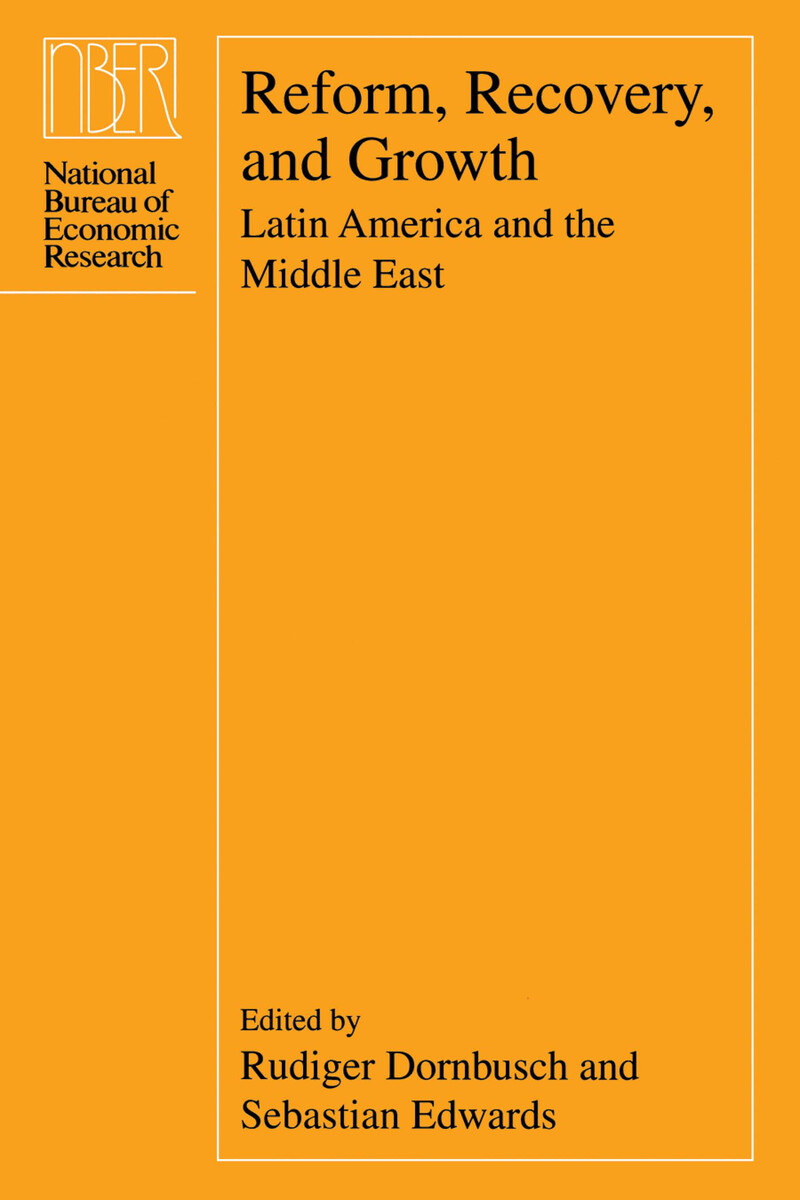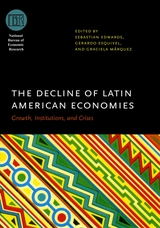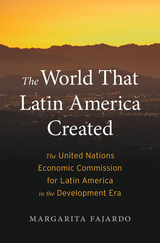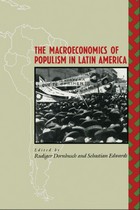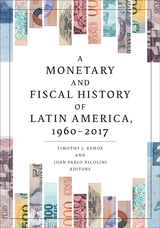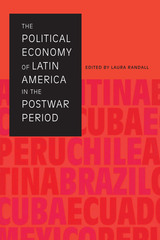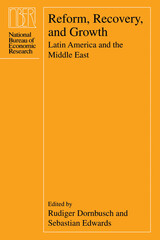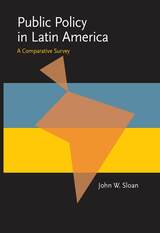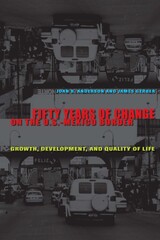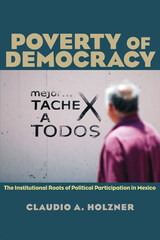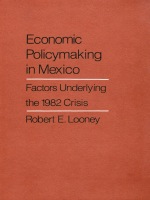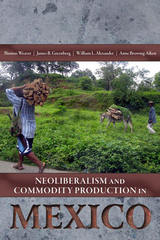Reform, Recovery, and Growth: Latin America and the Middle East
University of Chicago Press, 1994
eISBN: 978-0-226-15847-1 | Cloth: 978-0-226-15845-7
Library of Congress Classification HC125.R4127 1995
Dewey Decimal Classification 338.956
eISBN: 978-0-226-15847-1 | Cloth: 978-0-226-15845-7
Library of Congress Classification HC125.R4127 1995
Dewey Decimal Classification 338.956
ABOUT THIS BOOK | TOC | REQUEST ACCESSIBLE FILE
ABOUT THIS BOOK
The debt crisis of 1982 caused serious economic disruptions in most developing countries. Reform, Recovery, and Growth explains why some of these countries have recovered from the debt crisis, while more than a decade later others continue to stagnate.
Among the questions addressed are: What are the requirements for a stabilization policy that reduces inflation in a reasonable amount of time at an acceptable cost? What are the effects of structural reforms, especially trade liberalization, deregulation, and privatization, on growth in the short and long runs? How do macroeconomic instability and adjustment policies affect income distribution and poverty? How does the specific design of structural adjustment efforts affect results?
In this companion to Macroeconomics of Populism in Latin America, the authors confirm that macroeconomic stability has a positive effect on income distribution. The volume presents case studies that describe in detail the stabilization experiences in Brazil, Israel, Argentina, and Bolivia, and also includes discussion of Chile, Mexico, Peru, and Turkey.
Among the questions addressed are: What are the requirements for a stabilization policy that reduces inflation in a reasonable amount of time at an acceptable cost? What are the effects of structural reforms, especially trade liberalization, deregulation, and privatization, on growth in the short and long runs? How do macroeconomic instability and adjustment policies affect income distribution and poverty? How does the specific design of structural adjustment efforts affect results?
In this companion to Macroeconomics of Populism in Latin America, the authors confirm that macroeconomic stability has a positive effect on income distribution. The volume presents case studies that describe in detail the stabilization experiences in Brazil, Israel, Argentina, and Bolivia, and also includes discussion of Chile, Mexico, Peru, and Turkey.
See other books on: Economic Development | Growth | Israel | Reform | Turkey
See other titles from University of Chicago Press
